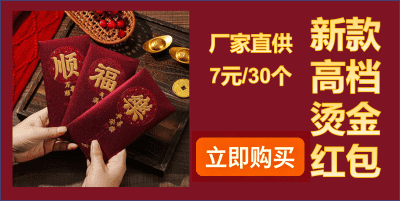明天还剩几天就过年了英语

【英语翻译关于春节的】
The Spring Festival, also known as the Chinese New Year, is the most important traditional festival in China. It is celebrated from the last day of the lunar calendar year to the first two days of the following year. During this time, people engage in various activities to welcome the new year. They decorate their homes with festive decorations such as red lanterns, couplets, and traditional Chinese paintings. These decorations symbolize good fortune, prosperity, and happiness.
【英语翻译关于春节的】
The Chinese Spring Festival holds significant cultural and historical importance. It is a time for families to gather and celebrate together. People travel long distances to reunite with their loved ones during this festive season. According to the Chinese zodiac, each year is associated with an animal sign, such as the Rat, Ox, Tiger, etc. These animal signs are believed to determine the characteristics of individuals born in that year. Therefore, during the Spring Festival, people also exchange greetings and wishes based on the zodiac signs. For example, in the Year of the Rat, people may say \"Wishing you a prosperous Year of the Rat!\"
【关于春节的英语短语】
When talking about the Spring Festival in English, the commonly used phrases include \"Spring Festival,\" \"Chinese New Year,\" and \"Lunar New Year.\" These phrases are specific to the Chinese culture and represent the same festival. It is important to capitalize the first letters of these phrases as they are proper nouns. For instance, \"I am looking forward to celebrating the Spring Festival with my family.\"
【春节的日期用英语怎么说?】
The date of the Spring Festival varies each year according to the lunar calendar. However, it usually falls between late January and mid-February in the Gregorian calendar. In English, we can simply refer to it as \"the date of the Spring Festival\" or \"the date of Chinese New Year.\"
【春节的英文怎么写?】
The English translations of the Spring Festival include \"Spring Festival,\" \"Chinese New Year,\" and \"Lunar New Year.\" These terms are all correct and widely used in English-speaking countries. It is essential to capitalize the first letters of each word as they are proper nouns. Additionally, adding \"the\" before the phrase is also acceptable, such as \"the Spring Festival\" or \"the Chinese New Year.\"
【明天有大雪5:她在三个月之后会生下一名男婴6:3点我们就没...】
During the Spring Festival, many people make plans and arrangements for this special time. For example, some individuals may choose to stay in their hometowns to celebrate with their families, while others may travel to different cities or countries for vacation. In China, it is common for people to return to their ancestral homes, which creates a massive influx of travelers during this period. These travel activities lead to tremendous economic benefits for the transportation and tourism industries.
【英语翻译凡是有关于过年的英语一切回答都进来帮帮忙牙】
New Year\'s Eve holds great significance in Chinese culture. It is believed to be the most important day of the year, marking the transition from old to new. On this day, families come together to have a reunion dinner, which often consists of various traditional dishes. The reunion dinner symbolizes unity, prosperity, and harmony among family members. Additionally, people engage in traditions such as setting off firecrackers, watching the Spring Festival Gala on television, and exchanging red envelopes filled with money as a symbol of good luck.
【今天是春节用英语怎么说】
Today is the Spring Festival. It is a day full of joy, blessings, and festivities. Families gather together to celebrate this auspicious occasion and wish each other good fortune for the upcoming year. In China, this day is considered a national holiday, and many businesses and schools are closed to allow people to fully enjoy the festivities.
【再过六天就要过年了的英语怎么写】
In just another six days, we will be welcoming the New Year. As the Spring Festival approaches, people are filled with excitement and anticipation. They are busy making preparations, shopping for new clothes, and stocking up on special food items for the festive season. This countdown to the New Year signifies the beginning of a new chapter and brings hope for a prosperous and fulfilling year ahead.



